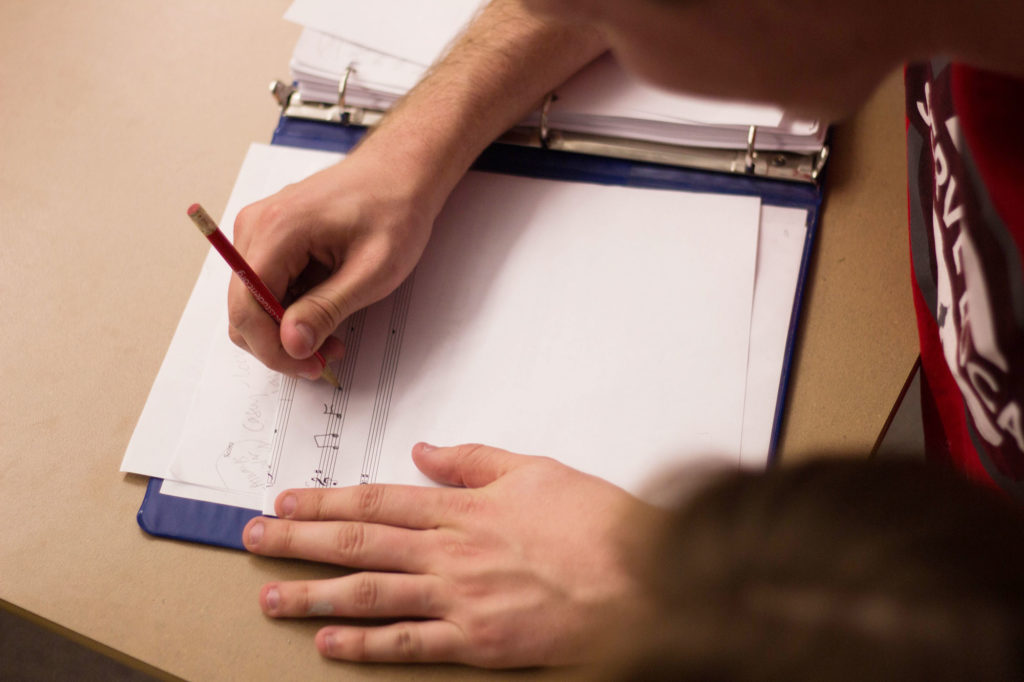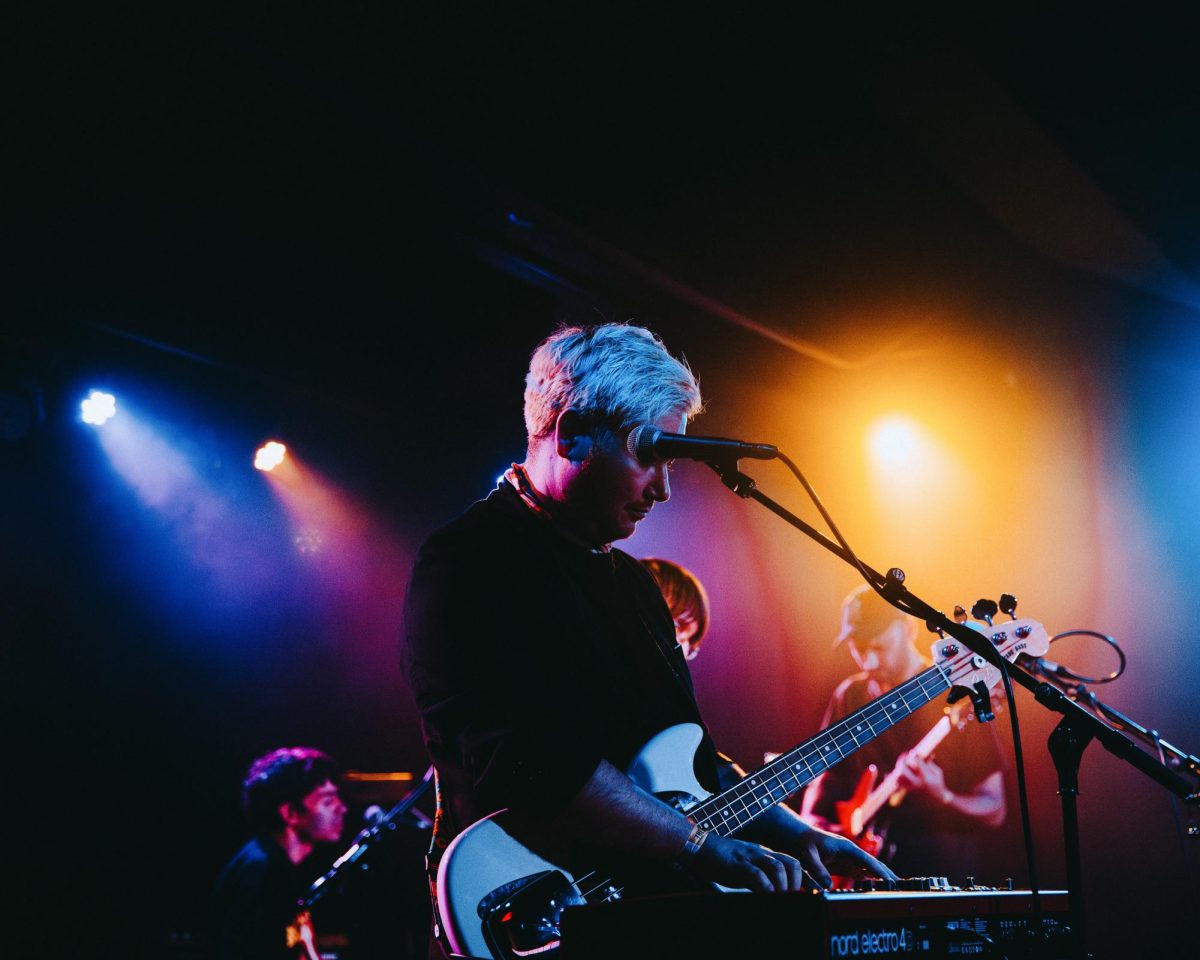If one were to attend a theater performance at Seattle University’s Lee Center for the Arts, they may be struck by a lack of jazz hands, show tunes and box steps. This is because the theater department at Seattle U does not produce Broadway musicals, but instead produces original works such as an adaptation of “Mirabelle: a Breeze,” “The Big Ambition” and the upcoming fall production “Mother Courage and Her Children.”
These productions often include songs and live music, but the featured music is used as accompaniment. These productions primarily focus on the spoken word.
“We are a theater academic program and chose shows that further the specific training and education of our students, most of whom desire actual careers in the arts,” said Ki Gottberg, Department Chair of Performing Arts and Arts Leadership. “We are not here to entertain or provide outlets for clubs or high school activities.”
This year, students Jordyn Preusker, David Cumpston and Lizzie Aguirre are coming together to bring a Broadway musical to the Seattle U campus. Collaboratively, the group has decided to independently produce “Cabaret” the musical.
“Cabaret” takes place during the Holocaust of World War II. During the musical, the characters go to the Kit Kat nightclub to distract themselves from the adversity that they face.
“There is a Jewish character, as well as a queer coded character, so it’s just this really cool story about people who are being oppressed and are finding a way to create a safe space,” said David Cumpston, the director of “Cabaret.” “There’s this idea of people being viewed by outsiders as less than because of things they simply don’t have control over, which is something that is definitely going on in our country.”
The directors were drawn to “Cabaret” for its distinct themes: persistence in the face of discrimination and hatred and embracing individual identity.
“There’s sometimes a lot of stigma around [musicals],” said Jordyn Preusker, the music director. “People think that musical performance is all jazz hands and belting, and to be fair, that can be a lot of it, but musicals are just as varied as any other kind of art.”
The directors assured that “Cabaret” is not intended to compete with the theater department or give them a negative reputation. “Cabaret” is being produced to provide an additional opportunity for students outside of the Seattle U theater program.
“We are attempting to give students opportunities that they might not otherwise be able to have,” said Preusker. “For instance, the chance to build a show from the ground up with next to no foundation is a huge undertaking that will help a lot of students grow as leaders and as theatrical professionals.”
Additionally, the directors hope they will connect with students who are not theater majors and expand their immediate community. “Cabaret” is a space that will be flexible with student schedules and the directors plan to invite those who do not have the time for the mainstage show to have an opportunity to work backstage.
“Anyone who auditions will get in and anyone who wants to do tech will do tech,” Cumpston said. “We’re not going to turn anyone away, everyone will get to participate.”
The official club information meeting will be Oct. 23 in the Lemieux Library. Auditions will be a week later on Oct. 30. All auditionees will be expected to prepare a song and learn a short dance number to showcase their abilities for the directors. Rehearsals will begin winter quarter, and the show will premiere during the second weekend of spring quarter.
Times and dates of rehearsals will be made around students’ schedules, but ultimately the group is planning to perform the show in the Casey Commons building.
“We don’t know how we’re funding it yet,” said Cumpston. “We don’t want there to be a fee, we want this to be as accessible as possible.”
One of the reasons the group chose to produce “Cabaret” is the simplicity of the show that allowed the group to not need expensive effects, costumes, or lighting.
“There’s this idea I think that you need a lot of money, and it just depends on what type of show,” Lizzie Aguirre, the choreographer said. “Especially if you’re doing it in a place that’s not a traditional theater space, I think you can really work with the architecture.”
Without reliance on effects or costumes, the directors can focus on bringing out the story.
“The reason that we go to see theater or movies or anything is because we’re interested in the story and the characters, and so, by striking everything else down, we get to emphasize that,’” said Cumpston.
For more information, contact director David Cumpston at cumpston@seattleu.edu. The directors would like to encourage everyone who is interested to come join them in their efforts to bring the Broadway musical “Cabaret” to campus.
The editor may be reached at
arts@su-spectator.com









